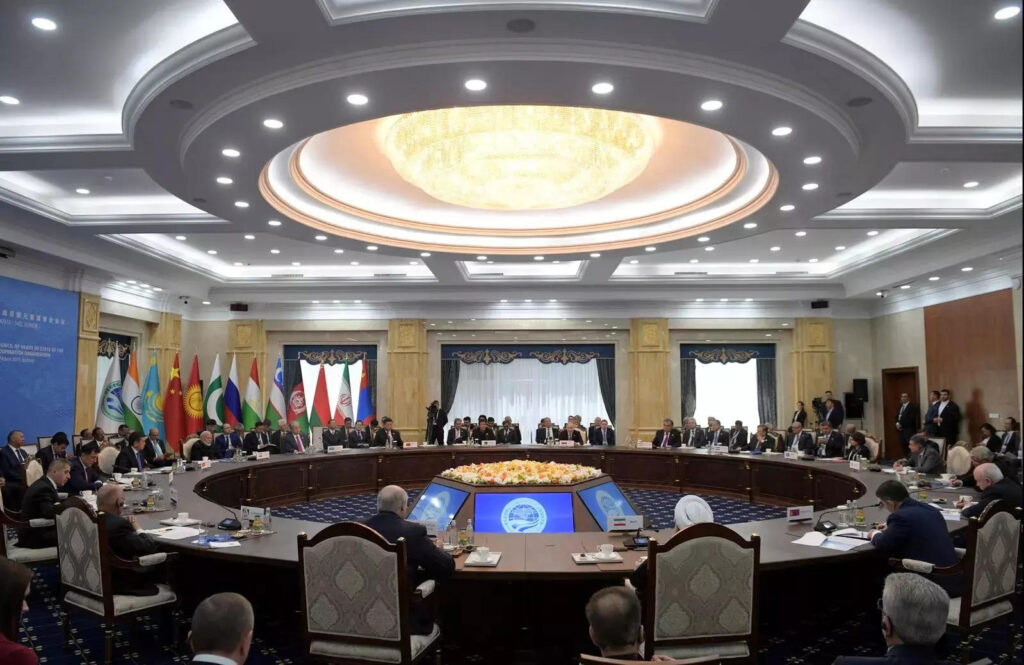Pakistan and China are unlikely to physically attend the Shanghai Cooperation Organisation (SCO) National Security Advisers meet hosted by NSA Ajit Doval here on March 29.
Both are expected to be present virtually at the meet that will be attended by NSAs from Russia and Central Asia including Russian NSA Nikolay Patrushev in preparation for the July summit. ET was first to report that the SCO NSA meet will be held here at the end of March.
The NSAs of the Eurasian grouping would focus on regional connectivity, counter-terror measures, cross-border terror and extremism besides drug menace and the Afghan situation, according to persons familiar with the subject. India will lay emphasis on optimum use of Iran’s Chabahar Port and International North South Transport Corridor (INSTC) as inclusive connectivity initiatives for Eurasia. Plans are afoot to connect Chabahar Port with INSTC
The SCO NSA mechanism is a key element of the grouping and would help to prepare for the SCO summit under India’s presidency early July. In May, India will host SCO foreign ministers meet in Goa.
The NSA has been meeting his counterparts from Eurasia including Russia and Central Asia at regular intervals to discuss the future of Afghanistan whose stability is imperative for both Eurasia and India. Doval was in Moscow in February to meet his counterpart with whom he shares a strong chemistry.
Continued threats posed by various terror groups including those designated by UNSC such as ISIS, Al-Qaeda, Lashkar-e-Taiba, Jaish-e-Mohammed and others in the Afghanistan-Pakistan region can figure on the agenda of the SCO NSA meet, hinted persons familiar with the subject.
Cyberspace is another important domain which is being used by terrorists and can have serious implications and the subject figures high on the agenda of SCO NSAs. India has also pitched for cooperation to tackle smuggling of illegal arms and ammunition in the region.
At the last SCO NSA meet held in Tashkent in August 2022, India had highlighted that persistence of terror networks in Afghanistan was a matter of deep concern and that increased terror attacks by ISIS-affiliate Islamic State-Khorasan Province in Afghanistan posed a threat to all.
This was highlighted by Vikram Misri, deputy national security adviser, who led the Indian delegation for the 17th meeting of NSAs of the SCO member states held in the Uzbek capital.
He had then referred at the meeting that technology has compounded terrorist threats manifold. New technologies including drones, artificial intelligence, blockchain, digital money and darknet were being used by terrorists and there was a need to counter these developments.
Misri had also pointed out that the Afghan territory should not be used for sheltering or training terrorists or planning or financing terrorist acts. International communities collective approach to counter terror has been articulated by UNSC Resolution 2593, he is understood to have said. Not only the distributors but also the sources and roots of supply need to be countered, he had noted.
In Afghanistan, immediate priorities include providing humanitarian assistance to the Afghan people; ensuring the formation of an inclusive and representative government; combating terrorism and drug trafficking; preserving the rights of women, children and minorities, Misri had highlighted at the Tashkent meet.
India became a member of the SCO in June 2017 and Iran is expected to join SCO as a formal member at the July summit.
Source: Economic Times


